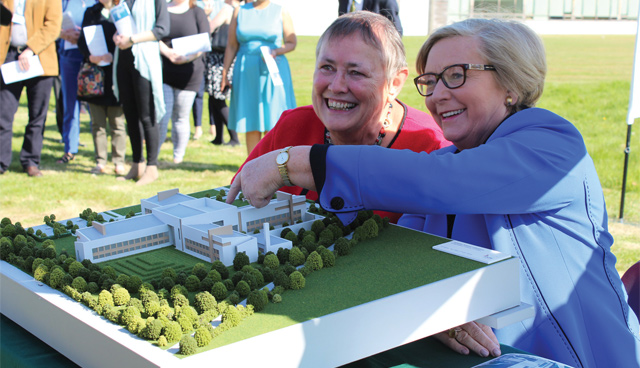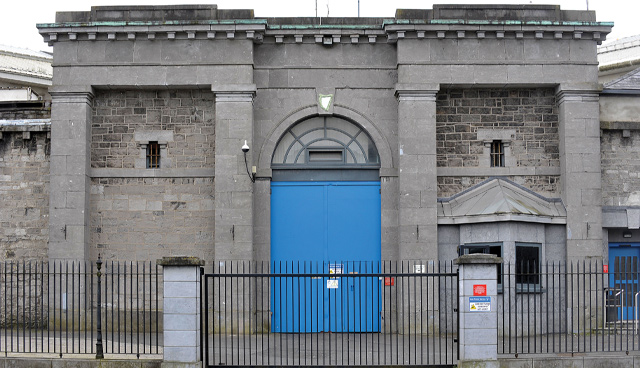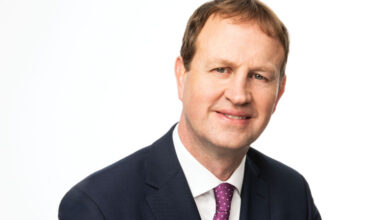Justice: Capital projects

A number of capital projects in the justice sector are currently in the offing. eolas examines the projects that will change both the physical and digital face of criminal justice in Ireland in the coming years.
Forensic Science Ireland Backweston Campus
Main building works began at the new Forensic Science Ireland (FSI) laboratory in Backweston, County Kildare in April 2020. The new laboratory will include approximately 9,550 square metres of internal floor space, which will include state of the art facilities such as air-exchange control to enable air-flow control in DNA sensitive areas such as the DNA database.
The Backweston Campus will also include an additional building, approximately 485 square metres, in order to provide storage for the items and exhibits that are submitted to FSI for examination. The €65 million building is expected to take in the region of two years to complete.
FSI, as part of the Department of Justice, provides a scientific service for the justice sector by providing forensic analysis of crime scene samples and by providing expert evidence in court cases. Initial sod-turning on the project took place in May 2018, however the project was delayed indefinitely in 2018 due to a lack of tender bids.
Tenders were expected to be awarded in summer 2019, but due to changes in international forensic laboratory standards, the merging of FSI with the Garda Technical Bureau and changes to staff numbers, the tender award was pushed back to the latter half of 2019. FSI has recently said that more staff will be needed to staff the new facility, with a 25 per cent jump in the numbers of cases handled reported in 2019, and a 20 per cent year-on-year increase in demand for its services in the first quarter of 2020.
Military Road
Work has begun on the €80 million construction of the new command and control centre for An Garda Síochána on Military Road in Dublin 8, near Heuston Station. Originally projected to finished for July 2022, delays have seen that date revised to September 2022, which has prompted warning from the Office of Public Works (OPW) that any further delays will have “huge financial implications”.
Garda specialist units are currently housed in Harcourt Square, but the OPW’s lease on the building they occupy expires at the end of 2022, requiring the completion of the new facility before then in order to facilitate the moving. The OPW had voiced its concerns about delays in the signing off of the construction contract at the start of 2020.
Writing in a letter to Garda Commissioner Drew Harris and the then Department of Justice Secretary General Aidan O’Driscoll, OPW Chairman Maurice Buckley said that he could not estimate the cost of further delays: “Suffice it to say, it is of a magnitude that none of us as accounting officers could countenance taking every available measure to avoid.”
The command centre will serve as headquarters of the Dublin Metropolitan Region, the Emergency Response Unit, the Criminal Assets Bureau, the Bureau of Fraud Investigation and the Special Detectives Unit. It was hoped that the construction of the building would begin in January 2020, but the failure to sign off the works contract until 10 February meant that the appointed contractor, John Paul Construction, could not begin work until late February. The site was then closed from 28 March until 18 May due to Covid-19.
Limerick Prison
Originally approved in 2012 by then-Minister for Justice Alan Shatter, the Irish Prison Service’s redevelopment of Limerick Prison will see them replace the men’s B wing with a 103-cell accommodation block.
Parts of the prison were deemed “not fit for purpose” by a 2012 inspector’s report, causing the uproar that precipitated the passage of the redevelopment plans. The Inspector of Prisons noted serious problems in the prison’s A and B wings such as overcrowding and poor physical conditions.
The refurbishment will include ancillary support services such as additional recreational facilities, kitchen facilities, a dedicated committal unit and a high support unit. In-cell sanitation will also be provided in order to put an end to the practice of slopping out.

At the time of the announcement, 104 inmates were housed in the 55 A and B wing cells, marking an almost 200 per cent use of the single-cell design capacities. The project has, since its initial conception, been expanded to also include the building of a new women’s prison.
The awarding of the construction contract for the project was challenged in 2019, although the challenger, Glenbeigh Construction, did agree to the lifting of an automatic stay on construction that the legal challenge would typically trigger due to the “extremely grave” conditions within the prison.
In 2019, it was reported that the Irish Prison Service was struggling to house female inmates after a 20 per cent rise in their numbers over two years. The Limerick Prison redevelopment looks set to play a large role in the alleviation of the problem but is not due for completion until 2021.
Garda ICT programme
Writing in his foreword to the Policing Authority’s seventh and final progress report into An Garda Síochána’s implementation of the 2015 Changing Policing in Ireland report, then-Minister for Justice and Equality, Charlie Flanagan TD wrote that he was “struck by the Authority’s observation that insufficient attention has been and continues to be given to the key enablers of change such as the organisation’s HR, ICT, training and finance functions”. The inclusion of ICT will especially be unwelcome news in the justice sector, given the pledging of €342 million of capital funding between 2016 and 2021 for the ongoing Garda ICT programme, including €65 million in 2019.
The focus on ICT improvement was once again emphasised when Garda Commissioner Drew Harris wrote in his in his foreword to the force’s 2018 report that An Garda Síochána was “under strain” in areas that included the introduction of new ICT programmes. Alarm was raised in the midst of this programmes when it was reported that Garda ICT budgets would be cut in order to pay for the June 2019 visit of US President Donald Trump. This alarm was emphasised by an internal Garda report showing failing with Garda DNA testing management, wit a quarter of Gardaí taking samples found to be doing so without proper training. The cuts were condemned by the Garda Representative Association.
In March 2019, Flanagan answered a Dáil question saying that “a number of key ICT initiatives are moving to implementation phase”, including: roll out of the Rosters and Duty Management System; phased implementation of the Mobility project for secure mobile access to Garda systems; roll out on a pilot basis of the Investigations Management System; and the establishment of the remaining Regional Control Rooms and the staged deployment of a new national Computer Aided Dispatch System. The then-Minister added that “a project to enhance network access to rural Garda stations is also currently being progressed”.





